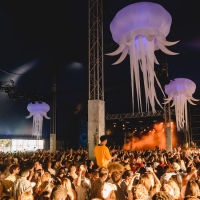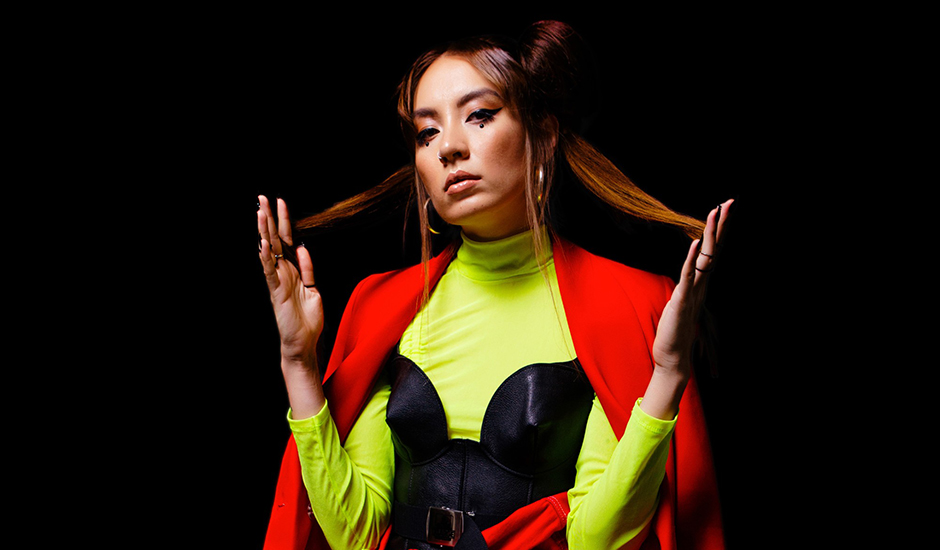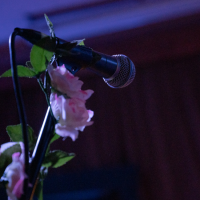 Here’s what West Australia’s changing live music rules means for gigs in 2021There have been big changes to how large-scale WA events can run, but are all dance floors banned? Here’s what’s up:
Here’s what West Australia’s changing live music rules means for gigs in 2021There have been big changes to how large-scale WA events can run, but are all dance floors banned? Here’s what’s up:

In a toxic music industry, we need more people like Jaguar Jonze
The Tawainese-Australian musician’s interview with The Project is a must-watch about sexual assault in the music industry.
Trigger Warning: This article discusses sexual assault.
The music industry has long been a hotbed for sexual harassment. Nearly every ‘rockstar’ biography details experiences band members have had with young women on the road, and women working within the music industry have long whispered about alleged sexual harassment and abuse on all levels of the industry’s hierarchy, from label heads and radio stars to band members and touring promoters; whispers remaining whispers out of fear of being ousted from their positions.
For decades, this behaviour has been overlooked; only made public by those brave enough to face the legalities of defamation - the costs, the time, the mental and emotional strength - and the threat that speaking up could have on their careers. As a woman working in the long-male-dominated music industry, speaking up could see you silenced - if not completely banished and blacklisted from the industry as a whole. As a musician, speaking of abuse and harassment in public can see your career can be thrown to the sharks by a simple phone call.
This week, research by Dr. Jeff Crabtree examined sexual harassment in the music industry, a first-of-its-kind report unveiled alongside a feature story with The Industry Observer. In his research, Dr. Crabtree found that 65% of the women interviewed have experienced pressure to have sex by those also in the music industry, and 85% experienced other forms of sexual harassment. They recounted experiences with rape, sexual abuse, harassment and gender discrimination: “The music industry is a world where powerful men prey on young women whose emerging careers they can snuff out in an instant; where men regularly abuse and harass their female colleagues but are never called to account,” says Dr. Crabtree on the study.
Last night, Jaguar Jonze - someone who has long fought against discrimination in the music industry - was featured on The Project, speaking about sexual abuse and harassment. In the interview (which you can watch in full here, and at the bottom of this article), Jaguar - real name Deena Lynch - details an experience where she was assaulted by two producers she was working with.
“As soon as my friend left there was a really quick change in behaviour. They straight away went for it: grabbing me, being very sexual towards me. The language changed. The behaviour changed. It started with just the one producer. And then when I found an opportunity, I went to the second producer. When I sat down with the second producer and said, ‘Hey, your colleague is making me feel extremely uncomfortable’ he replied, ‘That’s normal behaviour when he is intoxicated, don’t worry about it.”
It isn’t the first time Jaguar Jonze has spoken up either. Last year, she - alongside other women in the music industry - shared allegations by 59 people about Melbourne photographer Jack Stafford, leading to the photographer admitting to his behaviour: “I abused my power and have displayed pure misogyny in more than just my professional career but also in my personal life, with conversation and other actions to people who tried and failed to stop me. This wasn’t their fault,” he wrote. It was a powerful moment for Jaguar Jonze and all the anonymous people who spoke up against Stafford; a rare example of when continued pressure has resulted in accountability, rather than cease and desist notices.
View this post on Instagram
Inspired by the case, last year was a catalyst leading to many others speaking out for justice in the music industry. An anonymous Instagram account - @beneaththeglassceiling - emerged, detailing dozens of allegations against musicians and music industry figures across Australia; even launching localised New Zealand and global accounts to further the movement overseas. Remaining completely anonymous, Beneath The Glass Ceiling has become a platform for those to share their own experiences with sexual abuse and harassment, in a way that emphasises their power and strength while preventing legal action from being made against the accusers. Several other movements launched alongside, including the foundations of a private Facebook group for women and gender non-conforming music industry workers, and increased funding and resources to research and prevent sexual abuse within the music industry.
It comes with a risk, of course. Jaguar Jonze has repeatedly mentioned the fear and anxiety she has about her work with sexual assault survivors ruining her career; a career she has painstakingly built over the last few years, through literal blood, sweat and tears. She talks about it again with The Project - worried that speaking out about sexual harassment will see her career ruined - and its a worry that’s shared by so many others in a similar position; those that have a drive to remove the toxicity of the music industry, but afraid that by doing so, their own careers will be at risk, or that they’ll be forced to pay defamation fees they cannot afford.
There’s a fearlessness though that keeps Jaguar looking forwards, and likewise to all the other women speaking out about sexual harassment and abuse within the music industry. In the same The Industry Observer feature discussing the findings of Dr. Crabtree’s report, journalist Poppy Reid talks to I Know Leopard’s Rosie Fitzgerald about her experience with a sexual assault at BIGSOUND, and likewise, pop force Azure recollects a further experience of sexual assault in 2018: “Once you consent once I can do whatever I want,” her abuser told her.
This fearlessness extends forward to those who brought forward allegations against others throughout the last few years. It’s present in those that write in to platforms like Beneath The Glass Ceiling to share their experiences and warn others anonymously; in those that have risked their careers and well being to share their experiences publically, with the threats of defamation in their head the whole time; in those that have gone through the same assault, abuse and harassment, and are unable to speak about it just yet for reasons of their own.
“We have to understand the culture around all of this,” told Jaguar Jonze to The Industry Observer. “Which is, you don’t want to be ‘that girl’ that’s creating drama or causing interruptions, disruptions, disturbances within this small little clique of the Australian music industry. At the time I was at the bottom of the industry and so I had less power. People at the higher ends of the industry abuse their power. There’s a really strong power imbalance that silences us.”
Watch the full The Project interview below, and find the full report on Workplace Harassment in the Contemporary Music Industries of Australia and New Zealand here.
You can keep up to date with Jaguar Jonze's work via her Instagram.
Need to talk to someone? Call Lifeline on 13 11 14, Kids Helpline on 1800 551 800, Beyond Blue on 1300 22 46 36, Headspace on 1800 650 890 or QLife – for LGBT+ persons – on 1800 184 527.
For advice and support networks for musicians and workers in the music industry, head to Entertainment Assist or Support Act Australia.
 Here’s what West Australia’s changing live music rules means for gigs in 2021There have been big changes to how large-scale WA events can run, but are all dance floors banned? Here’s what’s up:
Here’s what West Australia’s changing live music rules means for gigs in 2021There have been big changes to how large-scale WA events can run, but are all dance floors banned? Here’s what’s up:
 International Women’s Day 2022Whilst we continue to educate and advocate, let’s also remember to celebrate all female identifying artists and music industry professionals.
International Women’s Day 2022Whilst we continue to educate and advocate, let’s also remember to celebrate all female identifying artists and music industry professionals. 